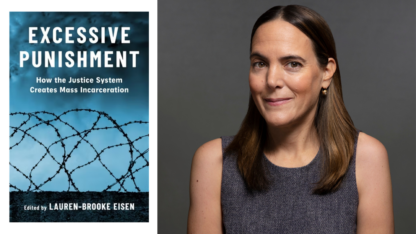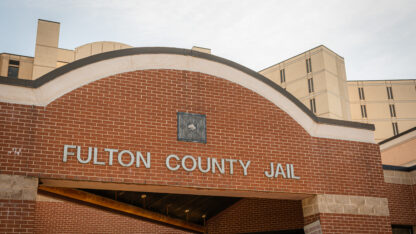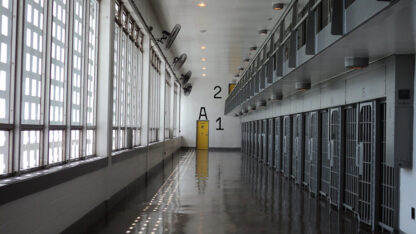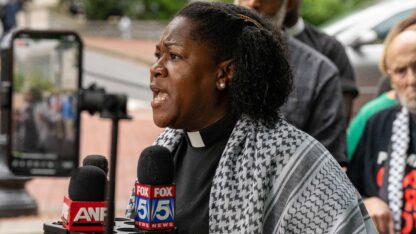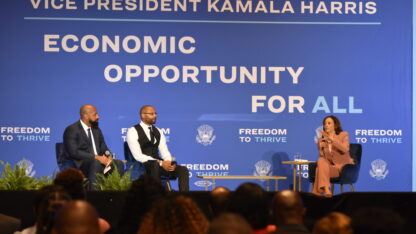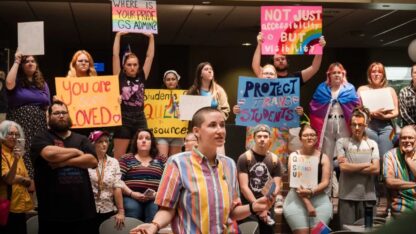Morehouse expands prison-to-college pipeline with $1.6 million gift

More incarcerated students will soon have access to an education from Morehouse College thanks to a federal investment of $1.6 million.
Congresswoman Nikema Williams says she secured the money for the Andrew Young Center for Global Leadership, which houses the Higher Education in Prisons Initiative, so approximately 200 students behind bars can participate annually.
“Historically, we haven’t invested in the futures of incarcerated individuals and y’all, this helps no one,” Williams said. “Our prison population is overwhelmingly and disproportionately comprised of Black men, so it’s only fitting that Morehouse is leading the charge in doing this work.”
The announcement comes after the state’s largest university, Georgia State, recently blamed the lack of federal financial aid and a $24 million budget shortfall for its decision to stop offering for-credit college courses at three of the state’s correctional facilities.
According to the Georgia Department of Corrections, around 50,000 people are incarcerated in the state.
And in July 2023, incarcerated students became widely eligible for Pell Grants for the first time since the 1994 crime bill, which banned federal financial aid for prison education.
More than 750,000 students are now eligible for aid across the country, but they must be at a correctional facility that offers a college program approved by the U.S. Department of Education.
GSU’s is one of the only three degree-seeking programs in Georgia.
Morehouse faculty currently teach two humanities courses at the Metro Reentry in Dekalb County, Burruss Correctional in Forsyth County, Downtown Reentry Program in Fulton County and the federal penitentiary in Atlanta.
However, Kipton Jensen, the program’s coordinator, says he’s excited, because that number will now grow to eight courses, creating a pipeline for the HBCU to ultimately be able to offer a degree.
“This work brings so much joy,” Jensen said. “I’ve seen the students come alive right before my eyes. … And for a few brief moments, a couple of hours, a couple of times a week, for them to feel free and to study the humanities in a place that does not always seem altogether humane.”
Another new component will be an ambassadors program for students to conduct research and provide peer mentoring to incarcerated and formerly incarcerated students.
Calvin Bell III is a Morehouse student who has been involved with the program since its inception.
“Many students on this campus will not tell you about their stories, but many of us are system-impacted in some capacity or way … and the criminal justice system impacts us on so many different levels, even if we are not behind bars,” Bell said. “So, I think this program meets us halfway.”
Morehouse President David Thomas said the program has primarily been funded by the school’s operating dollars, which limited its ability to grow.
“What we know from research is that certificates of education, degrees, etc. are interpreted by employers as a measure of someone’s human capital, meaning what can this person bring to us,” Thomas said. “We’re hoping that this will have a positive impact on the men as they go out and look for second chances and look to have viable careers that at a minimum put their families in the middle class.”
